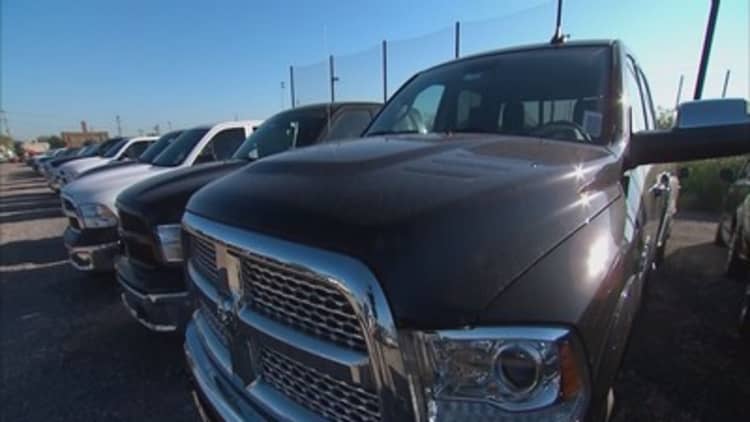The U.S. Senate overwhelmingly approved a five-year highway bill on Thursday that would fund America's roads, bridges and mass-transit systems and revive the charter of the U.S. Export-Import Bank over the objections of conservative Republicans.
In an action that sends the measure to President Barack Obama for his signature, the senators voted 83 to 16 to approve the $305 billion legislation hours after the bill cleared the House of Representatives by a margin of 359 to 65.
Obama is expected to sign the bill into law on Friday, hours before current funding is scheduled to run out.
As the first long-term U.S. highway bill in a decade, the Fixing America's Surface Transportation Act, or FAST Act, represents a rare victory for bipartisanship in Congress.
"It proves to the American people that we can get things done," said House Transportation Committee Chairman Bill Shuster, a Pennsylvania Republican.
The legislation returns the EXIM Bank to operation over conservative opposition that allowed its charter to expire on June 30. The agency, which helps U.S. companies with foreign competitors, would have its charter renewed through Sept. 30, 2019, but with a lower lending limit and other reforms.
Boeing, EXIM's biggest beneficiary, and General Electric have warned that the loss of agency support could cause them to move manufacturing jobs out of the United States. Ethiopian Airlines also expressed concern in September about its ability to take delivery on Boeing jets without EXIM support.
The new act drew accolades from Republicans for providing $280 billion in funding for infrastructure projects from the Highway Trust Fund without increasing the federal gasoline tax.

Democrats cautioned that the modest spending increases would not be enough to fully address the nation's crumbling roads, bridges and rail systems.
To avoid higher taxes, the bill's authors opted for a series of controversial measures including a transfer from the Federal Reserve's surplus funds, an increase in customs fees and a requirement for the Internal Revenue Service to use private tax collection agencies.
The measures would leave the Highway Trust Fund with $10 billion at the end of 2020, according to the nonpartisan Congressional Budget Office.
A number of add-on provisions in the legislation were the subject of intensive lobbying by the transportation industry and safety advocates.


